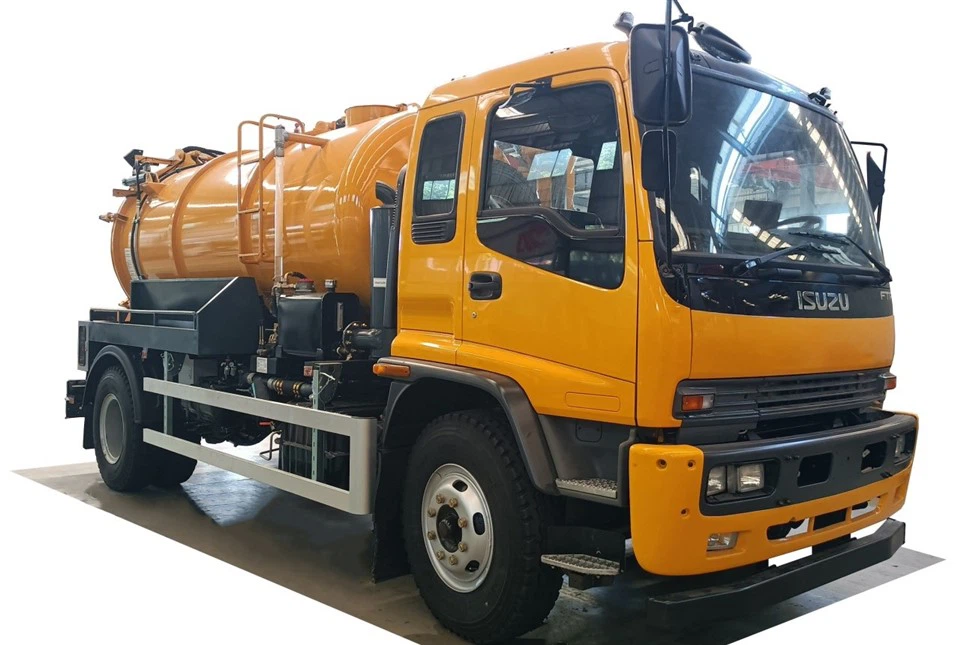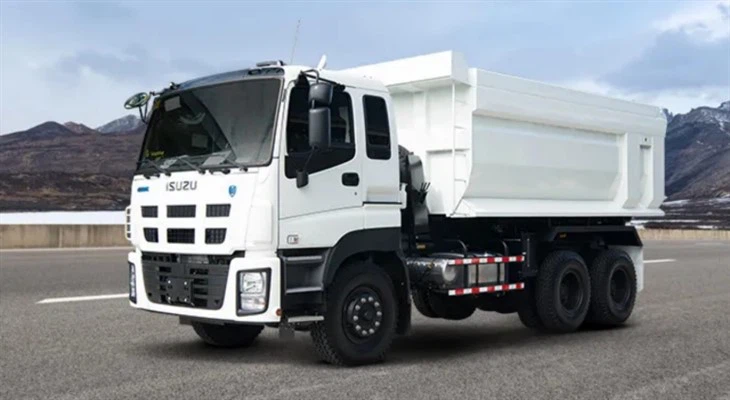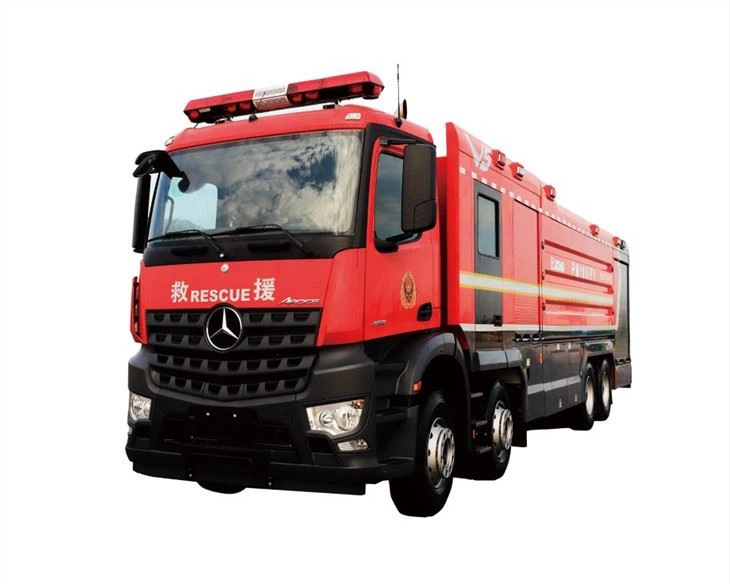Introduction to Vac Trucks
Vac trucks, also known as vacuum trucks, are essential pieces of equipment in various industries. They are specifically designed to remove liquids, sludge, and solid waste from different environments, making them vital tools for maintenance, cleaning, and waste management. This article will explore the types, uses, benefits, and operational aspects of vac trucks, along with practical tips for their effective utilization.
What is a Vac Truck?
A vacuum truck is a specialized vehicle equipped with a vacuum pump and a large tank. It functions by creating a vacuum that sucks up liquid waste or sludge, which is then stored in the truck’s tank for transportation to a disposal site. These trucks are commonly used for cleaning sewers, pits, and tanks, as well as for industrial cleaning tasks.
Components of a Vac Truck
Understanding the main components of a vac truck can help in grasping its functionality:
- Vacuum Pump: Creates the suction required to draw in waste.
- Storage Tank: Stores the liquid and solid waste collected.
- Hoses and Nozzles: Facilitate the collection of waste materials.
- Control System: Regulates the operation of the vacuum pump and other functionalities.
- Chassis: The vehicle structure that carries all components.
Types of Vac Trucks

There are several types of vac trucks, and each is designed for specific tasks:
1. Liquid Waste Vacuum Trucks
These trucks are designed primarily to handle liquid waste, such as sewage or hazardous materials. They typically feature a tank that can hold a large volume of liquids and are equipped with pumps capable of managing various viscosities.
2. Combination Vacuum Trucks
Combination vacuum trucks incorporate both vacuum and pressure systems, allowing them to both suck up waste and clean lines and tanks by flushing them. This versatility makes them suitable for a range of applications.
3. Industrial Vacuum Trucks
Industrial vac trucks are built to handle more robust applications in manufacturing and industrial settings. They can manage larger quantities of sludge, debris, and heavier materials, ideal for construction sites and heavy industry.
4. Portable Toilet Service Trucks
These vac trucks are specifically designed for servicing portable toilets. They are equipped with specialized tanks and pumps that efficiently remove waste from these units.
5. Hydro-Vac Trucks
Hydro-vac trucks use high-pressure water to soften and break up ground materials, making them ideal for digging in sensitive areas. They remove soil and debris using vacuum suction, which minimizes the risk of damaging underground utilities.
Applications of Vac Trucks
Vac trucks are used in a variety of applications across different industries:
1. Waste Management
They are crucial in the waste disposal industry for transporting liquid waste, septic material, and sludge to treatment facilities.
2. Municipal Services
Local governments utilize vac trucks for sewer cleaning, storm drain maintenance, and street cleaning to maintain infrastructure.
3. Industrial Cleaning

Manufacturing plants and factories use industrial vac trucks to clean spills, remove debris, and manage hazardous material safely.
4. Excavation and Construction
In construction, hydro-vac trucks are used for digging around utilities without causing damage. They can improve safety and efficiency on-site.
5. Environmental Remediation
Vac trucks play a vital role in cleaning contaminated sites by removing hazardous waste and supporting environmental cleanup efforts.
Benefits of Using Vac Trucks
The advantages of vac trucks are numerous, making them a top choice in various applications:
1. Efficiency
Vac trucks can clean and remove waste quickly, reducing the time required for maintenance and cleaning tasks.

2. Versatility
With different types of vac trucks available, they can cater to various needs, from liquid waste removal to industrial cleaning.
3. Environmental Protection
By effectively removing waste and preventing spills, vac trucks contribute to environmental sustainability and public health.
4. Cost-effective
Investing in a vac truck can be more economical than relying on multiple pieces of equipment for different tasks.
How Vac Trucks Operate
Understanding how a vac truck operates is crucial for effective use:
1. Setup
Before operation, the truck is parked securely at the waste site, and necessary safety precautions are taken, including wearing protective gear.
2. Vacuuming Process
The operator connects the appropriate hose to the vacuum pump, ensuring it is securely attached. The pump is activated, and the waste is sucked into the tank through the hose.
3. Transport and Disposal
Once the tank is full, the operator transports the truck to a disposal location, where the waste is securely emptied and processed.
Practical Tips for Using Vac Trucks
To maximize the efficiency and safety of vac truck operations, consider the following tips:
1. Regular Maintenance
Ensure that the vac truck is regularly maintained to prevent downtime and costly repairs. This includes checking the vacuum pump, hoses, and tank integrity.
2. Employee Training
Proper training for operators is essential. Ensure they are knowledgeable about operating procedures, safety precautions, and emergency protocols.
3. Use the Right Equipment
Select the appropriate type of vac truck based on the job requirements, such as the type of waste being removed and the environment in which it’s being used.
4. Safety First
Always prioritize safety by using proper personal protective equipment and following established safety protocols.
Cost Considerations for Vac Trucks
When considering a vac truck, it’s essential to analyze the cost factors involved:
| Cost Factor | Estimated Cost Range |
|---|---|
| Purchase Price | $100,000 – $500,000 |
| Maintenance | $5,000+ per year |
| Operating Costs | $50 – $200 per hour |
| Training Costs | $1,000 – $5,000 per year |
Popular Vac Truck Brands
Several reputable brands manufacture vac trucks, each known for its own unique features and strengths:
1. Vactor
Vactor is known for its innovative vacuum technology and reliable performance, suitable for various municipal applications.
2. Elgin
Elgin produces a range of street sweepers and vacuum trucks designed for environmental maintenance.
3. Pac-Mac
Pac-Mac specializes in combo vacuum trucks that combine suction and pressure cleaning capabilities.
4. Vac-Con
Vac-Con trucks are recognized for their durability and efficiency, ideal for heavy-duty cleaning tasks.
FAQ: Frequently Asked Questions about Vac Trucks
1. What types of waste can vac trucks handle?
Vac trucks can handle various types of liquid waste, sludge, hazardous materials, and solid waste, depending on their specific design and configuration.
2. How do I choose the right vac truck for my needs?
Consider the type of waste you need to manage, the volume of waste, and the environment in which you’ll be operating. It’s essential to assess the specific features of different vac trucks.
3. Do vac trucks require special licenses to operate?
Yes, operators often need specific training and licenses, especially when handling hazardous materials or operating large commercial vehicles.
4. How often should vac trucks be maintained?
Regular maintenance should be performed at least once a month, along with checks after each job to ensure the equipment remains in optimal working condition.
5. Can vac trucks operate in cold weather?
Yes, vac trucks can operate in cold weather conditions, but precautions such as using antifreeze and ensuring proper insulation can help maintain functionality.
6. Where can I dispose of the waste collected by vac trucks?
The waste collected can typically be disposed of at licensed waste management facilities or treatment plants that comply with local regulations on waste disposal.